Ivan Basso: I didn’t quit racing because of cancer
Veteran Italian talks about his new role at Tinkoff-Saxo
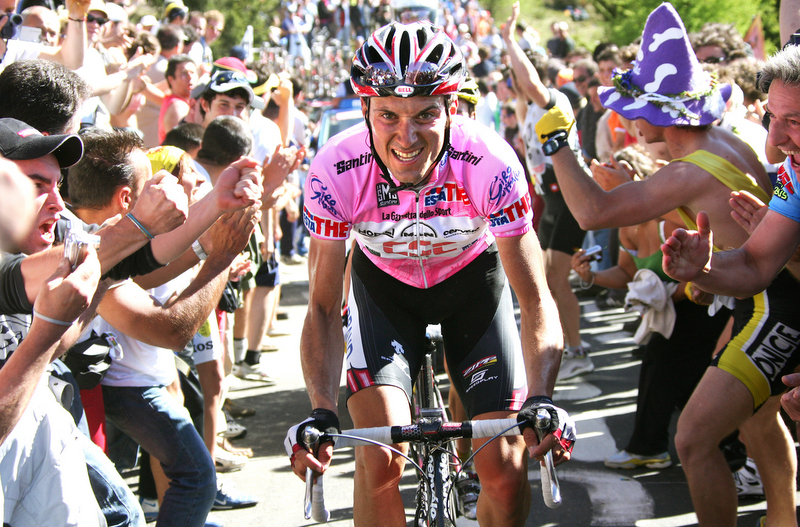
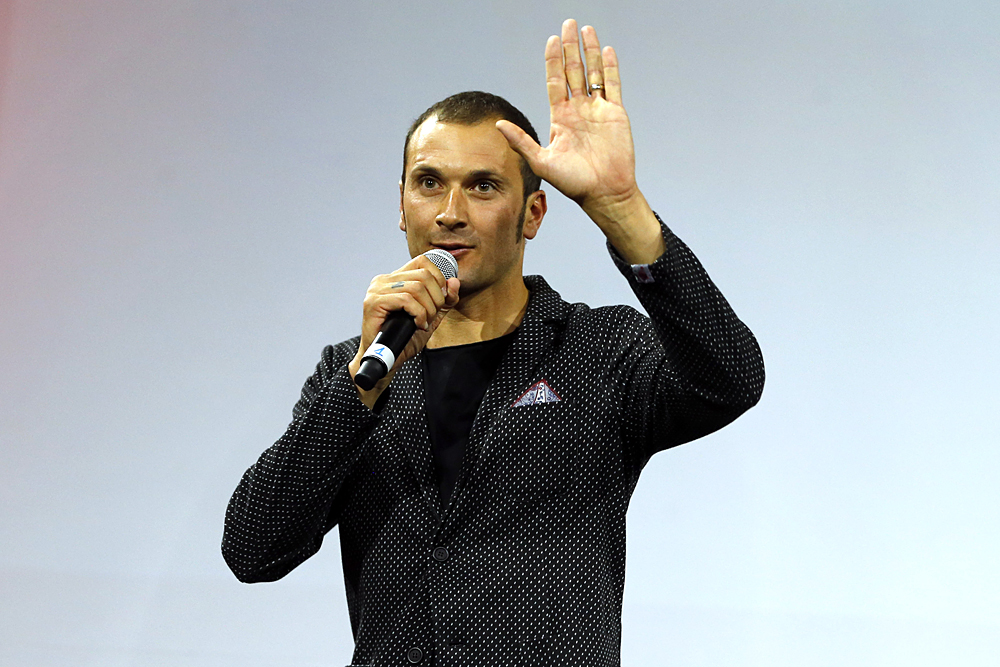
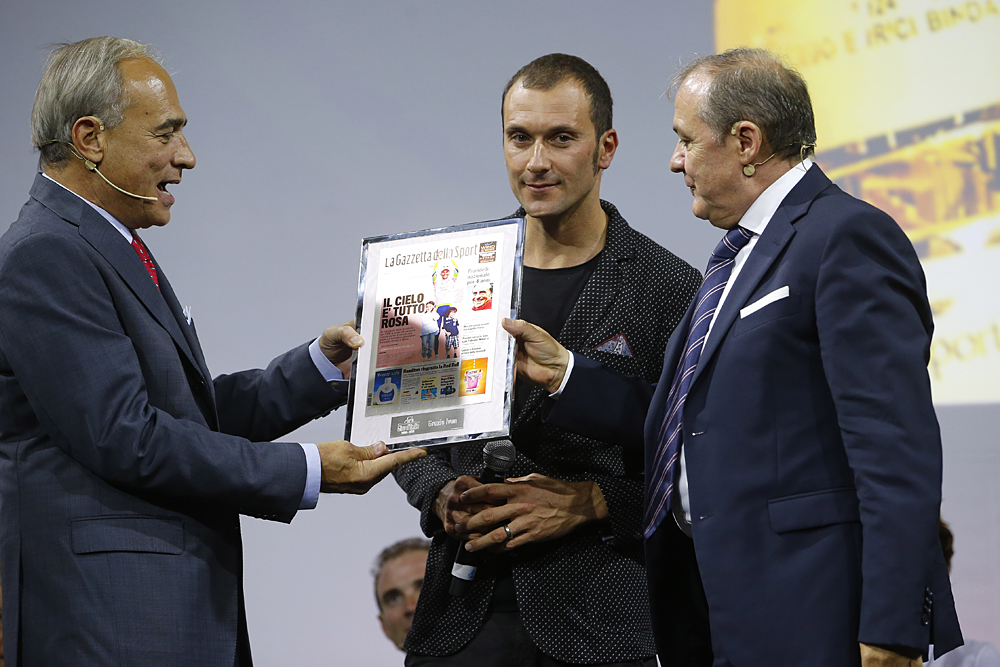
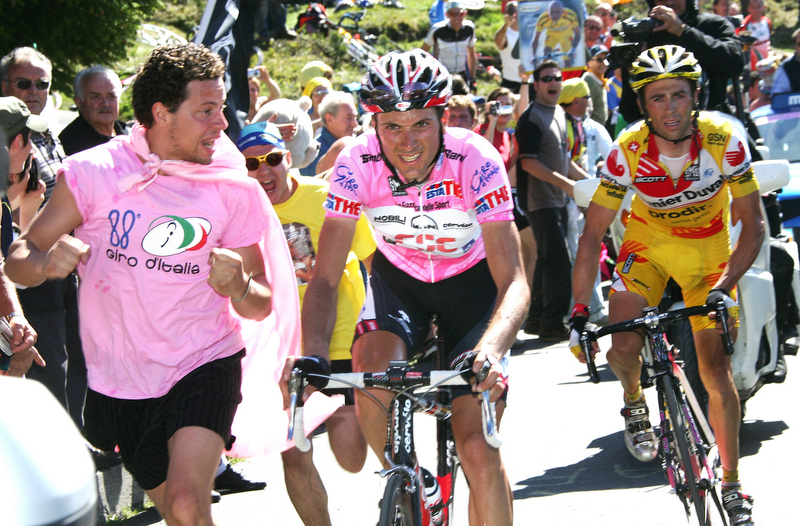
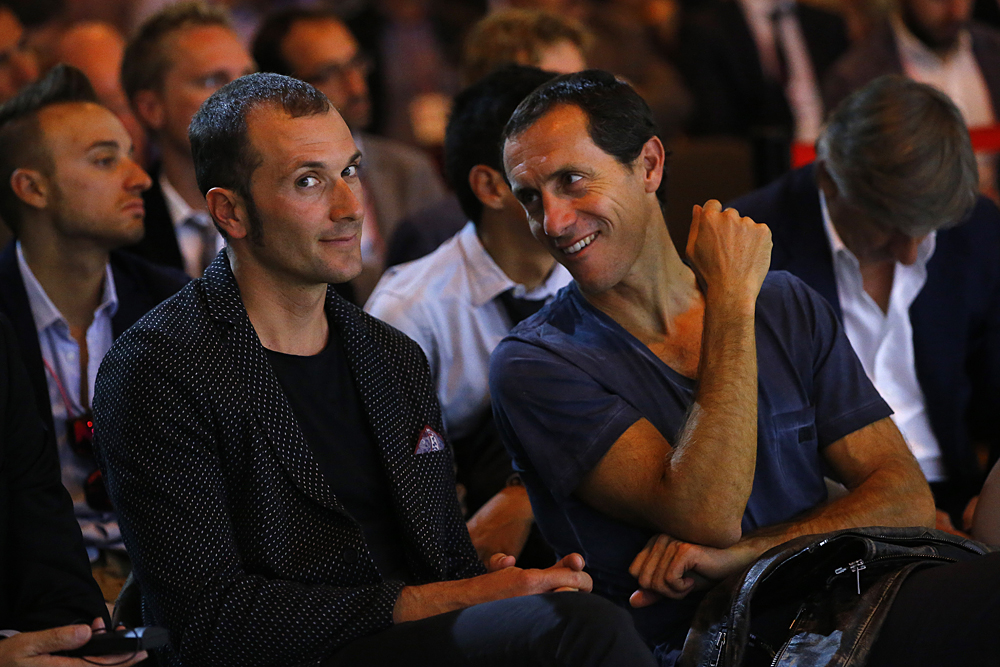
The assumption, understandably perhaps, was that Ivan Basso decided to hang up his wheels after being diagnosed and then successfully treated for testicular cancer this summer. However, the former Giro d’Italia winner tells Cyclingnews, that the decision to stop was sparked by entirely different emotions.
The Tinkoff-Saxo team camp in Croatia this week marked a huge juncture in Basso’s career. For the first time in 17 years he will put his own training and goals to one side and focus on the important relationship between riders and team management, acting as a vital conduit between the two parties within the Tinkoff-Saxo squad.
“This hasn’t been a surprise for me and I’ve arrived at this point, step by step, ever since I decided to stop riding,” he tells Cyclingnews after an early-morning meeting with the team's sports directors.
“I made that decision with the people at this team, and also my family, but the people I work with now helped me. For me, this is a really important part of my life, after so many years on the bike.”
Basso’s cancer diagnosis arose during the Tour de France after feeling pain for several days following a crash. It was announced on the race’s first rest-day and he returned to Italy immediately for treatment, including surgery. He has since recovered to the point where he can ride his bike, resume a normal life and is no longer under treatment.
“You know it was super easy to decide to stop,” he says, searching for an analogy that might describe what he has been through in recent months.
“It’s like going to the cinema and the lights go dark. So all of a sudden you don’t have the same adrenaline. Racing was like that for me, the lights had gone out and when that left me I gave into fear. It wasn’t a nice feeling and Steven de Jongh was one of the first people to notice this. I told him that I was afraid to race and that’s why I decided to stop. So going back to the cinema, if the lights are off and you want to start walking, you’re going to fall over. I just had to be honest, be smart and then use the friendly advice to stop.”
Get The Leadout Newsletter
The latest race content, interviews, features, reviews and expert buying guides, direct to your inbox!
Basso’s usual smile disappears when he returns to the subject of the cancer he survived.
“I want to say this: I didn’t stop racing because of the cancer,” he says with his index finger waving as if to emphasise the point.
“I could have come back from this, maybe not this year but if I’d trained in the winter then maybe I could have raced again next season. I used my bike in the last few months to keep things fresh and because I wanted to enjoy it. I wanted to stop my career with energy and for 38 that’s an old age to still be racing. For a normal life though 38 is still young and I have four children at home and I want to start my new career with a new start. You know, I actually feel like this is 1999 again and I’m a neo-pro.”
Understanding the fear
Basso’s career as a rider has evolved in the last five years, since his comeback from his doping ban for his involvement in Operacion Puerto. He moved on from being the Grand Tour contender that won the 2010 Giro d’Italia to become a domestique deluxe for Alberto Contador. The young riders on the team still saw him as a mentor and a leader despite the fact that his performances had begun to wane with age but he knew the time to quit was closing in.
“When you’re my age you do think about stopping at times,” he admits. “There’s one instance that I remember and it was at the Tour de France this year in the team time trial. The team knew that I was in trouble in the race but they protected me. I was there in the final five at the finish but it wasn’t because I was strong. It was because I wasn’t pulling. That’s why the team directors talked with me because they didn’t want to see me frustrated.”
When asked when he realised his powers on the bike had started to leave him, Basso pauses before replying: “I’ve done all that I could in cycling but that’s difficult to say. Every year your objective will change so for example my first race with Alberto Contador I felt good, but it depends. Feeling ‘good’ isn’t just about winning, and I just didn’t feel comfortable. I felt afraid.
“Let me try and explain with an example. When you meet someone and you like them, you feel something. It’s a different sensation but for me racing was similar; it gave me a special feeling. I could feel it in my stomach but I lost that feeling. Instead I just felt afraid. In races I was afraid I’d be dropped; afraid that the race would start too soon; afraid that I wouldn’t be able to help Alberto; afraid in the team time trial that I wouldn’t be able to help the team.”
Now Basso begins the next chapter of his life, in an unfamiliar role but with familiar, and friendly faces all around him at Tinkoff Saxo. This time he is not afraid, he is enthusiastic and excited.
“I know I’m going to make mistakes and I know that I have to learn but I’m going to do all that and I’m going to help myself and those around me to get the best out of this situation. They’ve already helped me,” he says.
Daniel Benson was the Editor in Chief at Cyclingnews.com between 2008 and 2022. Based in the UK, he joined the Cyclingnews team in 2008 as the site's first UK-based Managing Editor. In that time, he reported on over a dozen editions of the Tour de France, several World Championships, the Tour Down Under, Spring Classics, and the London 2012 Olympic Games. With the help of the excellent editorial team, he ran the coverage on Cyclingnews and has interviewed leading figures in the sport including UCI Presidents and Tour de France winners.
